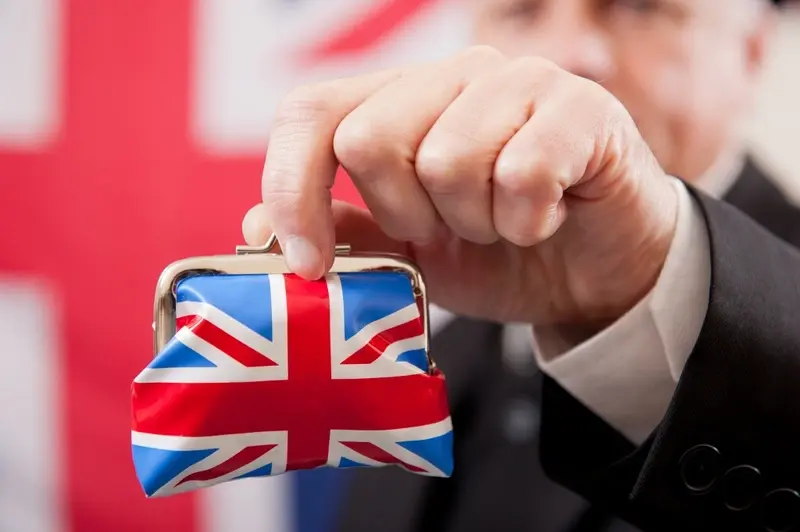
London’s FTSE 100 recovered in late afternoon dealings to end just 0.1% lower, despite being deeper in the red after UK Chancellor Jeremy Hunt’s autumn statement.
In the end, it was oil and gas companies that kept the FTSE 100 in check on Thursday. However, banking stocks rose as the sector largely avoided tax hikes.
The pound struggled to make headway after Hunt set out his fiscal plans, meanwhile.
The pound was quoted at $1.1779 late on Thursday afternoon in London, down from $1.1883 late Wednesday.
In New York, meanwhile, shares were weaker after hawkish comments from a Federal Reserve policymaker.
The FTSE 100 index ended 4.65 points lower, 0.1%, at 7,346.54 on Thursday. The FTSE 250 inched up 9.91 points, 0.1%, at 19,122.31. The AIM All-Share ended down 4.95 points, 0.6%, at 834.93.
The Cboe UK 100 ended 0.2% lower at 734.43. The Cboe UK 250 also closed down 0.2% at 16,434.84, while the Cboe Small Companies fell 0.1% to 12,858.29.
Stocks on the continent closed mixed. The CAC 40 index in Paris ended down 0.5%, while the DAX 40 in Frankfurt closed 0.2% higher.
Hunt delivered his autumn statement on Thursday, taking what he called a ‘balanced’ approach that put roughly equal weight on tax rises and spending cuts as he set out to repair government finances while also trying to grow the economy over the longer term.
Hunt delivered the statement in an ever-darkening economic environment, with the Office for Budget Responsibility saying the British economy is already in recession.
However, Hunt argued that his plans will mean ‘the recession is shallower, and inflation is reduced’. He said unemployment would also be lower, with ‘about 70,000 jobs protected as a result of our decisions today’.
Hunt announced two fiscal rules guiding his policies. The first is that underlying debt must fall as a percentage of gross domestic product by the fifth year of a rolling five-year period. The second, that public sector borrowing, over the same period, must be below 3% of GDP.
In order to achieve these rules, Hunt announced £55 billion of financial consolidation, with just over half coming from spending cuts and half coming from tax rises.
‘Markets are suspicious of rampant optimism when it comes to government finances, especially in such volatile political and economic conditions, so the new chancellor’s steady, calculated approach will help keep global investors on side,’ AJ Bell analyst Laith Khalaf commented.
Measures announced by Hunt also included an increase in the windfall tax on oil and gas firms to 35% from 25%. Meanwhile, a 45% levy on electricity generators will help raise an estimated £14 billion next year.
Shares in BP and Shell fell 0.6% and 0.3%. Smaller oil and gas sector peers Harbour Energy and EnQuest fared worse, losing 5.9% and 7.7%.
Power generator Drax added 5.4%, despite also falling into Hunt’s graps. The stock had been down some 3% earlier on Thursday, however.
SSE and British Gas owner Centrica added 1.5% and 5.4%, despite also facing a hit from the generator levy.
There were sigh of relief from the banking sector. No windfall tax measures were announced for banks, despite chatter in the weeks leading up to the announcement that there would be.
The Financial Times in October reported Hunt was considering cancelling a planned cut to the banking surcharge. The surcharge is due to be cut to 3% next year from 8% currently. That cut will still go ahead.
NatWest shares rose 2.5%, while Lloyds added 3.0%.
The euro traded at $1.0326 late Thursday, down from $1.0405 late Wednesday. Against the yen, the dollar was quoted at JP¥140.61, up from JP¥139.43 on Wednesday.
In New York, the Dow Jones Industrial Average was down 0.7%. The S&P 500 lost 1.1% and the Nasdaq Composite returned 1.0%.
US stocks struggled, while the dollar was supported after hawkish comments from a monetary policymaker.
St Louis Fed President James Bullard said on Thursday that ‘the policy rate is not yet in a zone that may be considered sufficiently restrictive’.
He added in a speech that the rate would need to be raised further to hit a level that is restrictive enough.
The central bank has embarked on an aggressive campaign to ease demand and bring down surging inflation, raising the benchmark lending rate six times this year.
Gold was priced at $1,758.92 an ounce late Thursday, down sharply from $1,777.45 late Wednesday. Brent oil fetched $90.02 a barrel, down from $91.89.
Back in London, Burberry shares rose 2.0%. The luxury retailer reported a strong rise in interim profit and revenue and lifted its interim payout by 42%.
For the six months that ended on October 1, pretax profit rose by 31% to £251 million from £191 million in the six months to September 25 last year.
Revenue rose by 12% to £1.35 billion from £1.21 billion, with new product launches and seasonal collections performing ‘strongly’.
Elsewhere in London, Ilika tumbled 32%. The solid-state battery technology company warned its loss before interest, tax, depreciation and amortisation for the six months to October 31 is expected at £4.5 million, widening from £2.7 million.
It also warned that revenue in financial 2024 and 2025 to be ‘materially lower than in previous forecasts’.
Friday’s economic calendar has UK retail sales figures at 0700 GMT.
The local corporate calendar has third-quarter results from Bank of Cyprus Holdings.
Copyright 2022 Alliance News Limited. All Rights Reserved.




